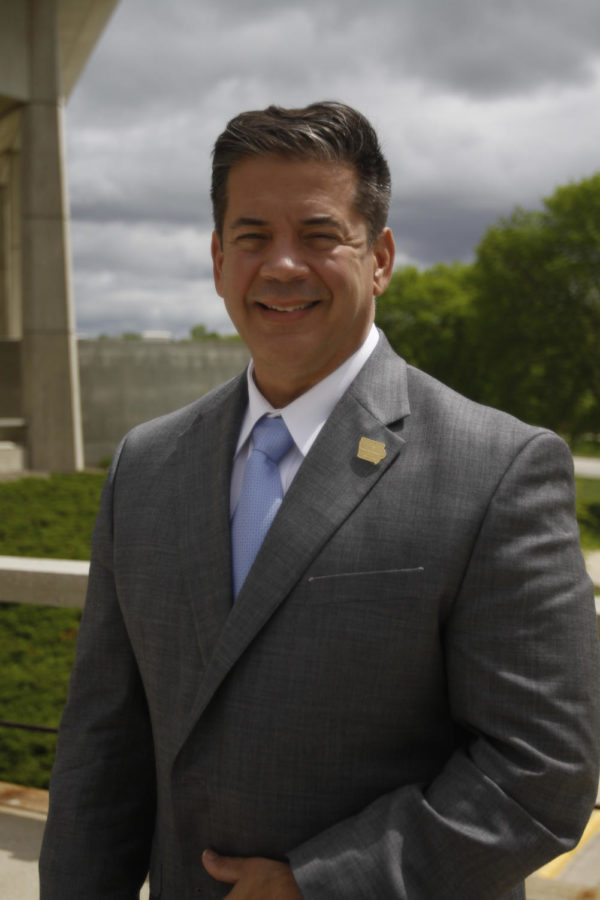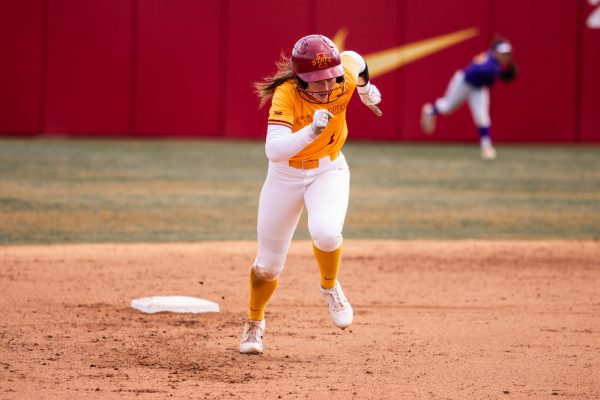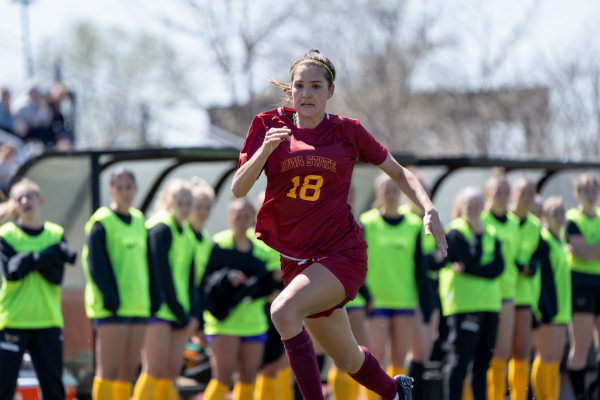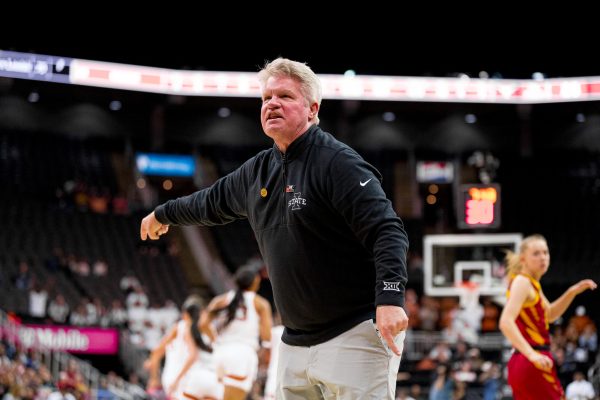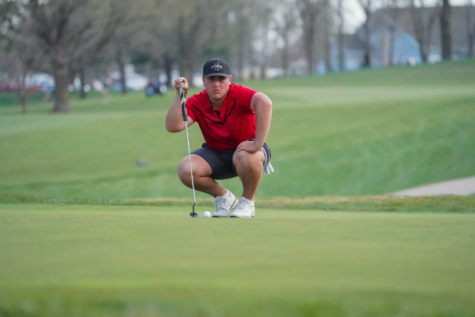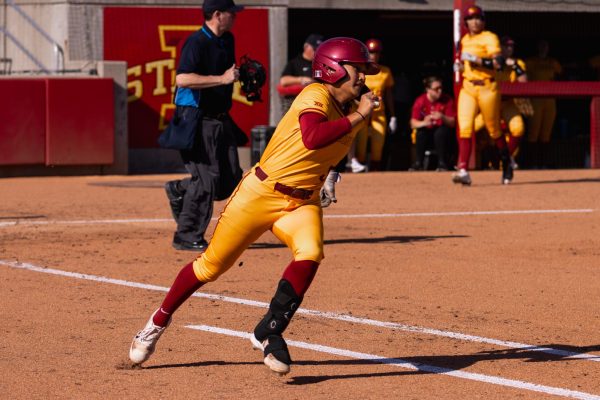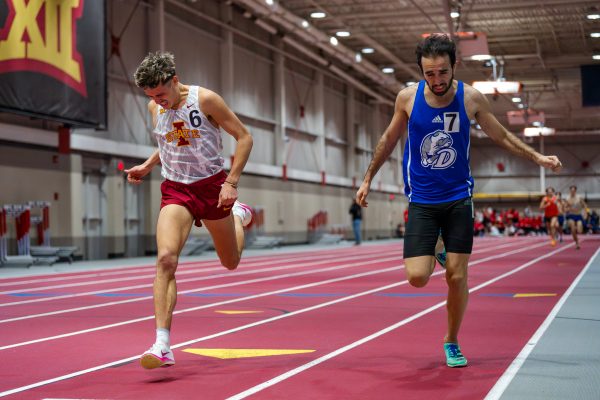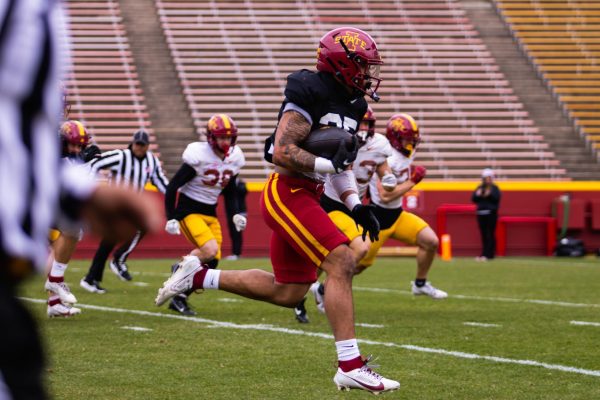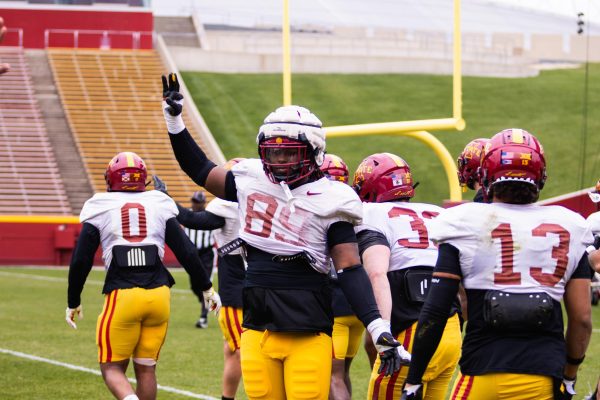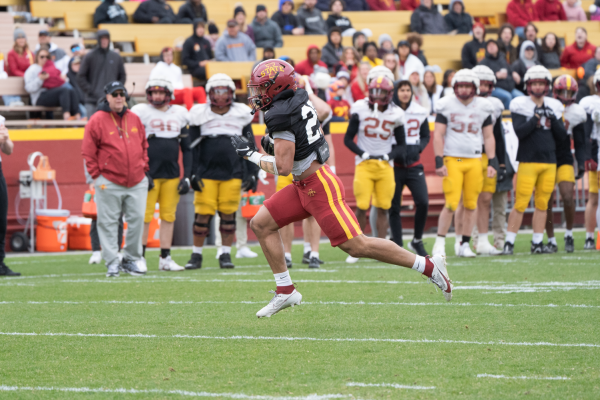Q & A with Special Olympics Iowa Director Hal Pittman
Photo: Miranda Cantrell/Iowa State Daily
Hal Pittman is the President and CEO of Special Olympics Iowa. He was previously the the Deputy Chief of Staff for Communications in Afghanistan. He has also held other communications positions such as Director of Communications, Director of Public Affairs, and Special Assistant to the Vice Chairman of the U.S. Armed Forces.
May 20, 2013
2013 marks the first year Special Olympics Iowa will be under the care of president and CEO, Hal Pittman. Before becoming president and CEO of Special Olympics Iowa, Pittman served more than 20 years in the United States Navy, eventually ascending to the role of Rear Adm., the highest attainable rank in his field.
Q: You were a Rear Adm. in the Navy prior to your role as CEO and president of Special Olympics Iowa. What experiences in the Navy brought you to the Special Olympics?
HP: In my off time, I spent a lot of time coaching and writing about sports training. In uniform, I ran a sports diplomacy program in Afghanistan and worked closely with the Afghan National Olympic Committee and helped to get them training from U.S coaches, getting them money to help refurbish their olympic stadium and other facilities. We also took a number of the people on the committee to the U.S. so they could see what first class sports programs and training look like. I wanted to work in sports management when I retired; that was my vision and my goal, and the opportunity to work for the Special Olympics was just icing on the cake. It was an opportunity to go from serving our country in a national security capacity, to serving the people who are less fortunate than the rest of us and provide them with programs that help them.
Q: How has the transition been?
HP: Fantastic. I love it. I love getting up every morning and going to work. It’s the best job I could have ever imagined.
Q: You also serve as the director for AAU Strength Sports. How do you balance your time?
HP: I compete in masters level power lifting and I train, I also train my son and other people, so that is a hobby I will be doing no matter what. It just so happens that I have ascended to a certain level where I have contacts that can help people promote those sports or ideas and so if I can help them, I will, but quite honestly, it’s not a full time gig. It’s not a job, it’s a volunteer position. I go to a board meeting a couple times a year or sit in on a conference call to monitor the way that AAU Powerlifting, AAU Weightlifting and the AAU Combine are progressing. It’s a volunteer activity not unlike your local neighborhood watch.
Q: Iowa State and the Special Olympics have been working together since 1984. How do you think that both benefit from each other?
HP: I think it’s a wonderful relationship. There are many Iowa State students over the years who have volunteered and have been apart of Special Olympics. This year actually had the highest amount of money raised at the Polar Plunge when it raised $137,000 for special olympics and that’s the students. The students get such a benefit from helping those who are intellectually disabled, whether they have a personal connection or not. It’s just a wonderfully, synergistic relationship that continues to grow and prosper. The community really comes out to support it and it’s just a great event.
Q: What are your future plans for the organization?
HP: What we will be doing after the games is refining our strategic plan for the organization, figuring out where we want to go as an organization. There’s still a lot to be determined. It’s how we can best serve the 11,000 intellectually disabled athletes that participate in our events. It’s going to be a long, painstaking process because strategic planning is never easy and never quick. I’d really like to develop a plan that takes us up to the 50th anniversary of Special Olympics Iowa in 2018.

